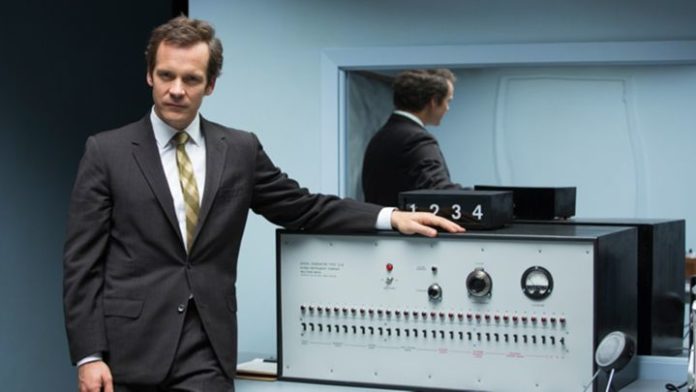
[responsivevoice voice=”UK English Female” buttontext=”Play”]
Directed by Michael Almereyda, The Experimenter follows American social psychologist, Stanley Milgram, as he designs a psychological test known as the Milgram Experiment “in which people think they’re delivering electric shocks to an affable stranger strapped into a chair in another room.” Beginning in July of 1961, Milgram (who was Jewish) created the tests with WWII in mind, the purpose being to better understand how people are able to conform to authority or groups, how they are able to put their conscience aside, and relinquish their free will, even if it means inflicting harm upon another.
Although electrical shocks were never really administered, the experiment can be considered harsh by some when taking into consideration the potential psychological effects it had on the unwitting test subjects who believed they were administering the shocks. Be that as it may, we now have the results of those tests, and they provided startling insight into human behavior when influenced by authoritative figures.
Even after 50 years, Milgram’s experiment maintains a powerful hold on the imagination, and in the opinion of psychologist, Gina Perry, the study has taken a role of what she calls a “powerful parable,” despite its ethical issues. While his work may not hold all the answers, it has inspired others to explore what makes people follow orders, and what makes them question authority.
[/responsivevoice]
This Article (Experimenter: The Stanley Milgram Story) is a free and open source. You have permission to republish this article under a Creative Commons license with attribution to the author and AnonHQ.com.





has anyone takin into account the fact that these people would have volunteered for this, and those who “would never do it” probly left the sample group, so basicaly you’d have a room full of mild to severe sociopaths inflicting fake pain on each other, not realising it is fake. no wonder the results were startleing.